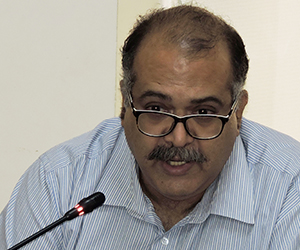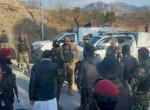Even while seething with anger over the news that the close relative of the international terrorist Dawood Ibrahim and former Pakistani cricketer Javed Miandad had been given a visa to visit Delhi to watch the final one-day match between India and Pakistan, one couldn’t help being utterly perplexed over the decision of the government of India to allow this man into India. The only rational explanation probably came from a Shiv Sena leader who said that the visa was given not in spite of Miandad’s close relationship with Dawood Ibrahim but because of it. Perhaps given the muted allegations of links between one of India’s most wanted criminals and terrorists and senior members of the UPA-II cabinet and the BCCI, the Shiv Sena’s take on the visa for Miandad sounds quite plausible.
All other explanations, including those of officials (Miandad was not on any black list; he was given the visa as part of a group comprising office-bearers of the Pakistan Cricket Board; due diligence had been undertaken before giving him the visa; and other such equally silly reasons) and those of apologists and hangers-on of the ruling Congress party (he is a great cricketer; India and Pakistan are improving relations; just because he is related to a terrorist is no reason not to give him a visa; and other such inane, if not idiotic justifications) don’t stand to any reason whatsoever.
Clearly, for all the noise that the government in India makes on the issue of terrorism and bringing terrorists like Dawood Ibrahim to justice, its actions and its policies are completely at variance with what it professes. What is more, the giving of a visa to Miandad has laid bare the sheer absence of any sort of statecraft in this current dispensation (which unfortunately seems to have rubbed off on the bureaucracy as well, especially since many of the time-servers are seeking extensions in service and are therefore currying favour with the political leadership even at the cost of the nation’s interest). One of the basic principles of statecraft is the use of all those instruments that help to further the interests and objectives of the State. But obviously, this simple rule has escaped the government of the day.
Despite the constant lament of both ordinary citizens as well as the strategic community in India about the failure of the government to emulate country's like the US and Israel (to name just two) in going after enemies of the State, the fact of the matter is that successive governments have neither been interested nor have they had the courage and conviction to develop capabilities to carry out extra-territorial operations against terrorists and saboteurs. The absence of such capabilities means that India cannot carry out covert actions to exact retribution for terrorist acts against its citizens. This leaves only a couple of tool in the hands of the government to use as leverage against countries and people who cross India’s path.
In the case of Pakistan specifically, two of the most potent tools are visas and economic clout. Ask any Indian diplomat who has dealt with Pakistan and he will tell you that the only game in town is visas. Add to this the economic power of the BCCI and India has a very powerful instrument to reward or punish Pakistan. Rather than using this power to force the issue, the current government has decided to surrender it and allow Javed Miandad into India. If at the time of announcing the cricket tour (even this should have been used as a leverage to get something out of Pakistan instead of mouthing meaningless banalities about cricket being a unifying force and cricket being bigger than people...) the government and BCCI had made it clear that Miandad would not be welcome, it would then have been Pakistan’s call on whether or not to come for the tour. If they still went ahead with the tour, a strong signal would have been sent that India neither forgives nor forgets acts of mass murder and anyone who associates with a mass murderer of India will also not be forgiven. Even if Pakistan has not accepted the condition, the same message would have gone home. Instead the message India has now sent is that you can trifle with India, hobnob with a mass murderer and international terrorist and still be welcome in India without any fear of punishment or penalty.
Which serious country which also aspires to play a big role on the international stage behaves in such a foolish manner? We need to keep in mind that the UK refused entry to Osama bin Laden’s son even though he was married to a British citizen and had rejected his father’s ideology. India too had refused a visa to a foul-mouthed Pakistani politician Sheikh Rashid after it became known that he had run a terrorist training camp for Kashmiri terror groups in the early 1990’s. But now it seems it is kosher to grant permission to such disreputable characters to enter India.
To argue that Miandad is not a terrorist is to miss the point. He entered into a matrimonial alliance with Dawood not out of ignorance of Dawood’s antecedents but because of them. In doing so, Miandad was cocking a snook at India and as it turns out has been allowed to get away with it. Equally specious is the argument equating Miandad with some of Dawood’s relatives who are still in India. Have we even lost the ability to distinguish between a foreign national and Indian citizens’? As for Miandad being invited because of his cricketing past, will India allow a relative of Hafiz Saeed just because he is a cricketer or a poet or a singer?
Clearly, the Manmohan Singh government’s Pakistan policy, if at all it can be called that, neither instils any confidence nor inspires any hope among a people who have been facing the scourge of criminality and terror from across the border. Much like the ancient Romans, it believes in providing Spectacles (read cricket matches) to lull the people into complacence.
Published Date: 5th January 2013










Post new comment